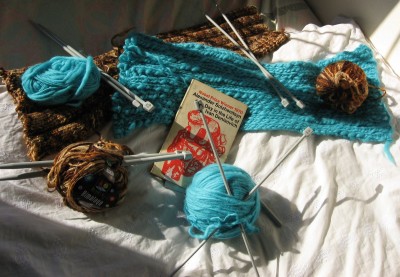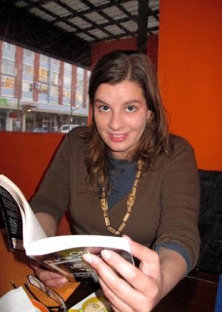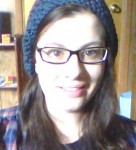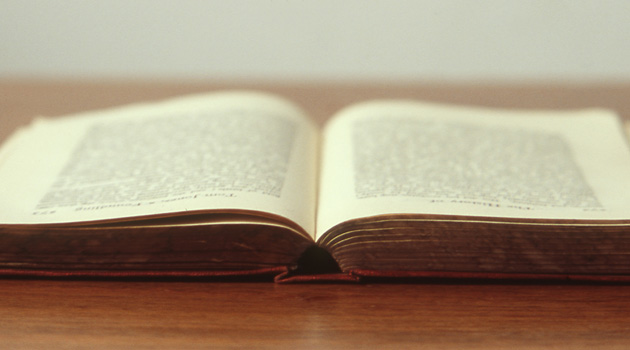Between 2006 and 2012, I lived in and studied in Cape Town, South Africa. During my time there, I discovered works I never would have found in the States (where I’m from). I could have wept with joy when I occasionally, unexpectedly, stumbled upon great books in junk shops with low-low prices. It was like unearthing a treasure. I spent uncountable hours reading in the African sun—on a quiet corner of campus, on a beach off the Atlantic Ocean, under any tree I could find.

And yet, access to books and the written word is limited for many South Africans, due to the past law of apartheid and its remnants in daily life. Books are a rare commodity and fiercely guarded in South Africa. I still haven’t worked through what my reading life in Cape Town has meant.
I spent a year as a grad student at the University of Cape Town in 2011, and I adored the main library’s Recreational Reading Room. It was a cozy wood-floored room filled with loveseats and novels by African and British writers, whose books never made it to American circulation desks.
Another gem of UCT was the library at Hiddingh Campus—an enclave of just a few Dutch colonial buildings in Cape Town proper. Hiddingh Campus was the Art School. The art and philosophy library (next to the campus art supply store) was my heaven amidst the madness of Cape Town. Walking there meant being aggressively (and I mean physically) pan-handled by strung-out child beggars.
However, anyone who set foot in either of these libraries without an active university ID would be denied entry by the dogmatic (and armed!) university security guards. The guards might take people to a clandestine location to interrogate them. If you tried to get into one of these libraries and couldn’t produce university ID, you were “renditioned” for a day.
(Do I need to state that this never happened to me, a white American student? But that for a time I was dating a South African student, a Coloured student, an absent-minded student, who once forgot his ID and tried to get into the library and ended up cuffed to a chair in the basement instead? I checked out books for him for the rest of the semester. But that’s not justice, is it?)
And so, books for South Africans who aren’t university students can be hard to come by. Cape Town had some nice book shops, but the price of new books was prohibitively expensive. $30 USD for a new paperback is steep to me, even by current US standards. But in that world where wages and general standard of living were lower, $30 translated back into South African Rands was a pile of money. I couldn’t see how anyone could afford to read new books. When I last lived in Cape Town, the country also had no broadband infrastructure—so Internet access was prohibitively expensive, too. A world of words is online, but proved too expensive to dive into.
And then, the public library went missing. No, this isn’t a magic realism tale. I lost the Cape Town Public Library.
The Main Collection was at one point located in the City Hall building in Cape Town proper. (On Darling Street. By the taxi rank.) But the last time I lived in Kaapstad, in 2011, no one could tell me where the public library stacks were. THE MAIN COLLECTION OF THE PUBLIC LIBRARY WAS MISSING! I was convinced I’d stumbled into a Borges short story, because no one ever cleared this up for me. To this day I have not learned where the main library’s books have been moved.
I read a lot in Cape Town, and I tried to read things that I could only get in South Africa. But the fact that I could do this was a mark of my privilege—as a white person, as a US citizen. The written word isn’t the resource that most Westerners think of exploiting when they think of South Africa. I didn’t want diamonds and I didn’t want gold, I wanted to get to know the works of Alex La Guma, Steve Biko, and Nadine Gordimer.

I still have some ambivalence regarding South Africa, the intractable racism and classism there, and my own compliance with unjust systems. But that isn’t to suggest that there aren’t excellent organizations there, working to make education and access to literature more equitable, or to make South Africa a reading nation.
 Laura Eppinger graduated from Marquette University with a degree in Journalism. Her laptop screen got cracked during a year in Cape Town, South Africa, but it never stopped her from writing. Her publications list lives here.
Laura Eppinger graduated from Marquette University with a degree in Journalism. Her laptop screen got cracked during a year in Cape Town, South Africa, but it never stopped her from writing. Her publications list lives here.


0 comments on “Literary Treasure Hunting in Cape Town”